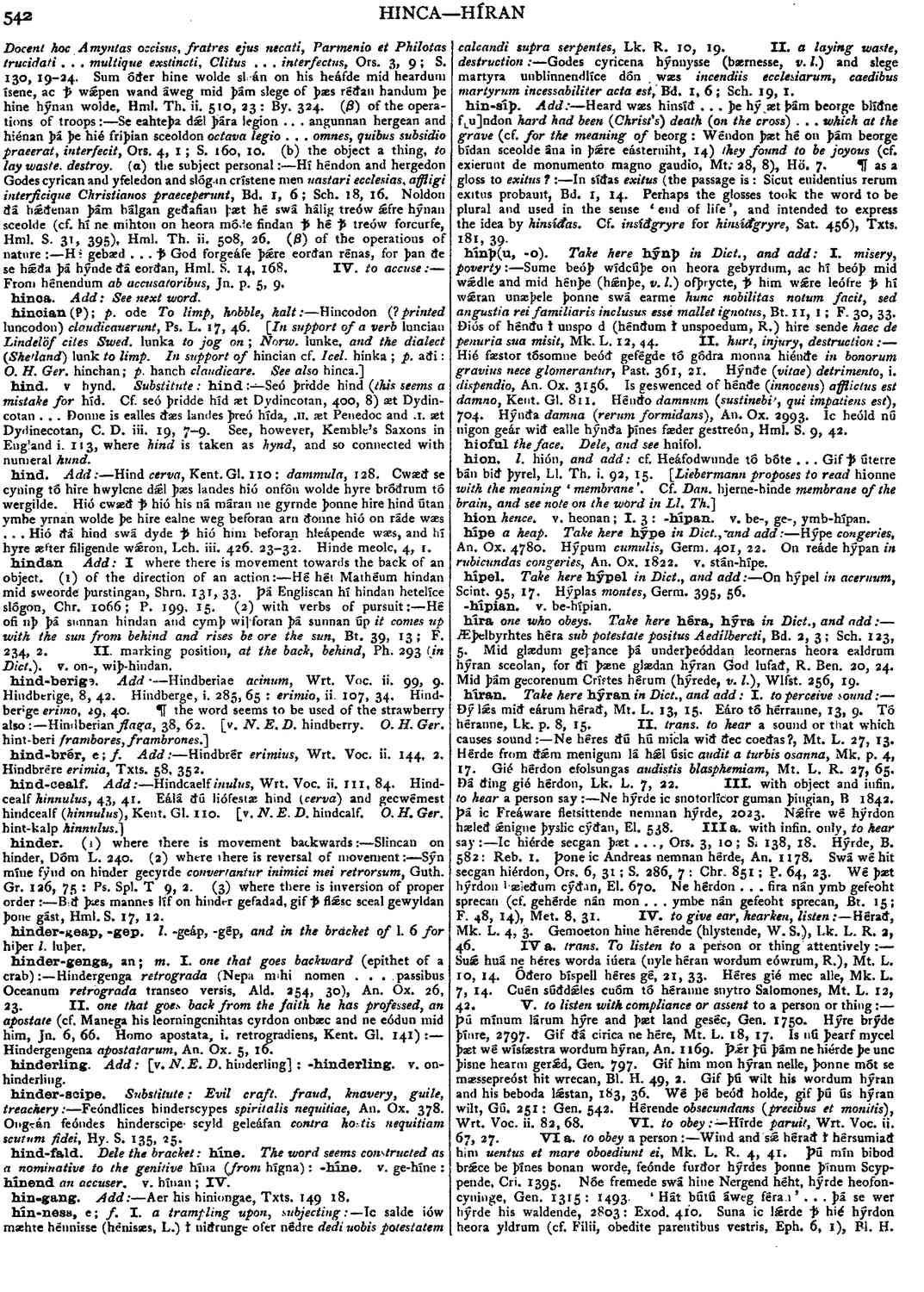hínþ
-
Sume beóþ wídcúþe on heora gebyrdum, ac hi beóþ mid wǽdle and mid hénþe (hǽnþe, v. l.) ofþrycte, ꝥ him wǽre leófre ꝥ hí wǽran unæþele þonne swá earme
hunc nobilitas notum facit, sed angustia rei familiaris inclusus esse mallei ignotus,
- Bt. 11, I ;
- F. 30, 33 .
-
Ðiós of hénðum ł unspo d (hénðum ł unspoedum, R.) hire sende
haec de penuria sua misit,
- Mk. L. 12, 44 .
-
Hié fæstor tósomne beóð gefégde tó gódra monna hiénðe
in bonorum gravius nece glomerantur.
- Past. 361, 21 .
-
Hýnðe
(vitae) detrimento, i. dispendio,
- An. Ox, 3156 .
-
Is geswenced of hénðe
(innocens) afflictus est damno,
- Kent. Gl. 811 .
-
Hénðo
damnum (sustinebi, qui impatiens est),
- 704.
-
Hýnða
damna (rerum formidans),
- An. Ox. 2993 .
-
Ic heóld nú nigon geár wið ealle hýnða þínes fæder gestreón,
- Hml. S. 9, 42 .
Bosworth, Joseph. “hínþ.” In An Anglo-Saxon Dictionary Online, edited by Thomas Northcote Toller, Christ Sean, and Ondřej Tichy. Prague: Faculty of Arts, Charles University, 2014. https://bosworthtoller.com/52529.
Checked: 1